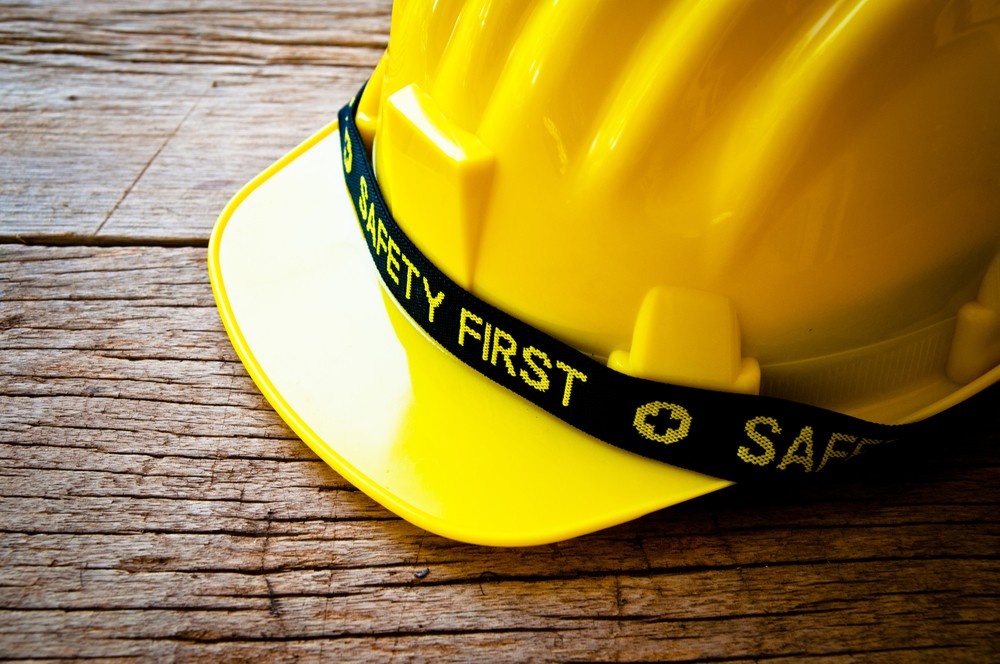News Post
November 2015 Newsletter
HSE Update
Self Employed Law change – 01 October 2015
Follow the link below to see if these changes apply to you!
http://www.hse.gov.uk/self-employed/index.htm
Costs soar for contractors hit by safety fee scheme
Contractors hit by charges under the controversial HSE Fee for Intervention scheme have seen their bills jump by 40% since it started.
Analysis by legal firm Pinsent Masons shows the average cost of an invoice has now soared to more than £700.
The controversial scheme was introduced in 2012 and allows HSE inspectors to charge contractors for visits when they break safety laws.
Fears are now growing that the HSE could be using the scheme to raise money following funding cuts.
Laura Cameron, Partner at Pinsent Masons, said: “The HSE will need to recoup the funding lost in budget cuts via wider use of the Fee for Intervention scheme.
“The regulator is issuing those guilty of breaches with invoices for increasingly significant sums- signalling that it remains serious about clamping down on non-compliance.”
Self-employed inspector fined after boy seriously injured in swing collapse
A playground inspector has been fined after a seven-year-old boy suffered life-threatening head injuries when the rope swing he was playing on collapsed.
The inspector had failed to identify the swing was rotting during a number of inspections, the last one just seven weeks before the incident, when he deemed the risk posed by the swing to be low.
The young boy was playing with friends, supervised by an adult, at Cherry Lane Adventure playground in Crawley on 8 April 2014 when the incident occurred.
Worthing magistrates heard that the wooden pole of the rope swing he was on broke, hitting him on the head.
He suffered serious head injuries and was airlifted to hospital and has since made a full recovery.
A self-employed inspector accredited by the Royal Society for the Prevention of Accidents (ROSPA), was prosecuted by the Health and Safety Executive.
HSE’s investigation found that the self-employed inspector described the condition of the swing as ‘excellent’ during an inspection in 2013. Seven weeks before the incident he reported the risk posed by the swing as ‘low’ despite the fact he had raised previous concerns over its stability.
Worthing Magistrates’ Court heard that thorough inspections of wooden play equipment are vital to preventing accidents. In this case HSE found the rot was foreseeable, had occurred over a long period of time and should have been spotted by the inspector and reported to the playground operator, Crawley Borough Council.
The self –employed inspector, pleaded guilty to breaching Section 3(2) of the Health and Safety at Work etc Act 1974 and was fined £1,120 and ordered to pay costs of £3,600.
Jaguar Land Rover in court over death of worker
Car manufacturer Jaguar Land Rover has been sentenced for safety breaches discovered during an investigation into a death of a worker at its Merseyside plant.
Liverpool Crown Court heard the worker, was found trapped between two 24 tonne pieces of car making machinery called ‘dies’ on 26 September 2011 at the firm’s factory in Halewood.
The court was told it is thought the deceased was moving the machinery with a crane when its chain/hook snagged on the die, causing it to move towards him and crushing him.
As part of its investigation into the incident, the Health and Safety Executive (HSE) found Jaguar Land Rover had failed in its duty to undertake a suitable risk assessment of the risks to its employees were exposed to in relation to the pre lift process prior to the lifting of dies.
It was accepted in court that the regulation breach was not causative of the worker’s death.
Jaguar Land Rover Ltd of Abbey Road, Whitley, Coventry, was prosecuted by the Health and Safety Executive (HSE) over breaches of Regulation 3(1) of the Management of Health and Safety at Work Regulations 1999.
After the hearing, HSE head of operations for the north west, said: “A suitable risk assessment is an essential step in ensuring that the risks arising from work activities are properly controlled.
“This is particularly important where the work is hazardous and has the potential to result in serious harm.
“Employers are therefore reminded of their legal responsibility to identify the hazards and decide on the precautions that may be necessary.”
£28,000 fine after worker injures fingers at abattoir
A company which processes and distributes meat for retail catering and wholesale sectors has been fined after an employee suffered severe injuries to the fingers of his left hand when they came into contact with a band saw.
Forfar Sheriff Court heard how on May 2013 an employee of Quality Pork Processors Limited, of Brechin, which at the time called A P Jess (Brechin) Limited, was using a band saw which formed part of the machinery for cutting pig carcasses.
The court was told the band saw, which had an exposed blade, was being used as a replacement for the usual saw which was inoperative. The replacement band saw was not fitted to a conveyor to carry the sections of cut meat away from the blade and towards the employee. This meant that the employee’s hands were in close proximity to the exposed cutting blade.
It was during the process of moving the meat that the employee’s fingers came into contact with the band saw.
Quality Pork Processors Limited, of The Abattoir, Montrose Road, Brechin, was fined £28,000, after pleading guilty to an offence under Section 2 of the Health and Safety at Work etc. Act 1974.
Laundry firm fined £20k after worker suffers third degree burns
A Stockport laundry firm has been fined after an employee fell through a mezzanine floor onto an industrial iron, sustaining third-degree burns.
The 34 year old man, a father of one, was in hospital for six weeks after the incident at Vineshield Professional Services Ltd in November 2013.
Trafford Magistrates’ Court heard on 11 September that an investigation by the HSE found the company had failed to monitor the condition of the floor and did not ensure that it was of a suitable construction for the environment in which it was used.
Witnesses provided evidence to HSE that there were leaks in the roof which went onto the wooden floor and metal patches were found in several places where there were holes in the wood.
Vineshield Professional Services Ltd, of Baxall Business Centre, Adswood Industrial Estate, Stockport, pleaded guilty to breaching Section 2(1) of the Health and Safety at Work Act 1974 and Regulation 12(1) of the Workplace (Health, Safety and Welfare) Regulations 1992. It was fined £20,000, plus £7,915.50 costs.
The HSE inspector, speaking after the hearing, said: “Vineshield Professional Services failed to carry out checks to ensure the floor was safe to work on. This was of importance due to the heat and steam generated in the working environment. An industrial iron giving off steam was situated directly underneath the mezzanine floor. The injured worker was severely burnt and had to undergo very painful treatment in hospital.”
Fencing company fined £50k after worker suffers severe trauma
A fencing company has been fined for safety failings after an employee suffered serious injuries to his left arm.
Taunton Crown Court heard how, on 18 January 2014, an employee of Weavo (Fencing) Products Limited was using a band re-saw (large saw used for cutting timber) when his gloved hand became caught on the spiked wheel of the feeding mechanism.
As a result, the worker’s left arm was severed to just below the shoulder.
Weavo (Fencing) Products Limited, of Station Works, Hatch Beauchamp, Taunton, was fined a total of £50,000, and ordered to pay £11,769 in costs after pleading guilty to an offence under Section 2(1) of the Health and Safety at Work etc. Act 1974.
Speaking after the hearing the HSE Inspector said: “This was an entirely avoidable incident, which resulted in a man suffering severe trauma and life-changing injury because of a number of failures by his employer.”
Builder fined £10,000 after employee dies at work
The HSE has warned all employers to make sure that risks from height are fully considered following the prosecution of a builder who failed to ensure the safety of one of his employees, who suffered a fatal fall from an unsecured stepladder.
A self- employed labourer working for Peter Wright (trading as PW Joinery and Building Services) fell while travelling from the ground to the first floor of a two storey extension during construction work in Alne, North Yorkshire.
Teeside Crown Court heard the stepladder was too short to reach the first floor, which was accessed by passing through a gap in the flooring between joists. The employee was carrying a bucket of mortar at the time he fell. He suffered fatal head injuries.
HSE prosecuting told the hearing the incident could easily have been avoided. It said Peter Wright had not carried out a suitable and sufficient risk assessment and failed to plan and supervise work at height appropriately.
HSE told the court that had he done so he would have identified failings in the standard of access to and from the first floor and ensured that a safe system of work was implemented. His failure to comply with his legal duty of care to those working on site led to the worker suffering fatal injuries.
Mr Wright pleaded guilty at an earlier hearing to a single charge of Section 3(1) of the Health and Safety at Work etc. Act 1974.
Peter Wright trading as PW Joinery and Building Services of West End Cottage, Baldersby, Thirsk, was fined £10,000 with £19,000 costs.
The HSE inspector said after the hearing: “The failure by Mr Wright to comply with his legal duty of care to those working on site led to this worker suffering fatal injuries. The potential for this was always present.
“All employers need to ensure that risks from height are fully considered. HSE will not hesitate to take appropriate enforcement action against those who fall so far below the required standards”
York nightclub boss hit with £173,000 court bill for fire safety lapses that risked hundreds of lives
The boss of three popular night spots in York city centre and his company face a £173,000 court bill for fire safety lapses that risked hundreds of lives.
Aaron Matthew Mellor’s Toft Green nightclub Tokyo had faulty smoke detectors, fire alarms and emergency lighting, crates of bottles blocking an emergency exit and fire doors that didn’t work properly, York Crown Court heard. The premises also had furniture with torn covers that could have ignited and wooden panels along escape routes as well as an occupied bed-sit with a blocked exit and other fire safety issues.
The offences relate to February 2013 when the nightclub had a capacity of 850 people.
It changed its name to Fibbers when the music venue moved out of Stonebow into the premises in July 2014. Through Tokyo Industries which he founded in 1997, Mellor is in charge of Fibbers as well as neighbouring Black Orchid lap dancing and strip club and Stein Bier Keller Bavarian beer cellar.
Jonathan Goulding, prosecuting, said the danger was so great, fire inspectors would have closed the premises down immediately under a prohibition order, but Mellor agreed to close it voluntarily for a few days.
Mr Goulding said: “Mr Mellor was responsible for the safety of everyone at the premises and put visitors and staff at risk of death or serious injury.”
The Recorder of York, Judge Stephen Ashurst, said: “Those likely to have been most affected would have been a large number of largely young people, many of whom would be vulnerable in the sense of having their judgement and faculties affected by alcohol”.
York Crown Court heard that fire inspectors found the problems after they were contacted by a member of the public concerned that the club’s smoking area was next to a diesel generator. It was used to supply electricity privately because the club was in dispute with the public electric supply company.
York Crown Court heard that in Lincoln, police and fire officers found a similar catalogue of fire hazards at Mellor’s premises in Silver Street on April 1, 2013. They were so serious that one night the emergency services stayed on the premises until after it closed to ensure every customer got out safely. At the time it housed The Basement club and had a total capacity of 600.
North Yorkshire and Lincolnshire Fire and Rescue Services combined forces to prosecute Mellor, 45, of Deansgate, Manchester, who pleaded guilty to one offence of failure to obey an enforcement notice ordering him to improve fire safety at Tokyo, York. He denied 11 similar offences in Lincoln, but was convicted at a trial before a district judge.
Tokyo Industries (One) Ltd, of which he is currently the sole director, admitted three offences relating to Tokyo York.
Mellor was fined a total of £76,000 and ordered to pay £67,450 prosecution costs. Tokyo Industries (One) Ltd was fined £30,000.
The judge said he was satisfied that Mellor had made “significant” efforts to improve fire safety at the two venues and others that he controls.
He read out a comment made by Mellor to fire inspectors: “This has been a categorical disaster. I am not proud about any of the circumstances at all. I have learnt from this. I have learnt a hell of a lot from this.” He had also said he would never knowingly or willingly put people’s lives at risk.
York Crown Court heard that Mellor operated 24 venues across the UK but had no convictions for fire safety offences. His lawyers handed in testimonials which the judge said showed he was “well regarded and set high standards in the entertainment industry”.
Mr Goulding said of the York nightclub offences “A fire safety assessment is regarded by fire safety experts as the most important element in fire safety management but it appeared the one they found referred to another nightclub used by Mr Mellor.
“One described an exit onto Princess Street but there was no such exit.”
Mellor said after the court case: “These incidents relate to occurrences in early 2013. We totally accept that the findings of that night where unacceptable and local management failed to address key issues. Guest and staff safety is something we have always held in high regard.
“Following this incident, our systems have been further strengthened to ensure failures of this type are unable to be repeated. Both sites ceased trading in May 2013 and have since been re-let following full refurbishments with over £1m being invested. All venues have been subjected to increased scrutiny from internal compliance teams and fire services nationally, with all venues out performing beyond expected standards.”
Restaurant owner fined over employer liability insurance
A restaurant owner has been fined for failing to provide Employers’ Liability Compulsory Insurance (ELCI).
Hasret Sasmaz, trading as Starburger of Frances Street, Woolwich, was fined a total of £1500 (£500 for each offence) and ordered to pay full costs of £1779 at Maidstone Magistrates’ Court after pleading guilty to three offences under Section 1 of the Employers’ Liability (Compulsory Insurance) Act 1969.
Speaking after the hearing HSE Inspector Robert Hassell said: “Every employer needs to ensure that they have Employers’ Liability Compulsory Insurance in place, where such breaches, as in this case, are identified they will be pursued by the HSE.”
For more guidance on Employers Liability visit the website at http://www.hse.gov.uk/foi/internalops/og/og-00042.htm
Piling firm fined for lack of rig safety guard
A piling contractor has been fined after it was found to be operating a powerful rig without a safety guard around the rotating auger.
Sevenoaks Magistrates’ Court heard how HSE inspector Melvyn Stancliffe made an inspection of a site in Maidstone, Kent, in December 2014 and witnessed the piling rig in operation without a safety guard.
HSE had previously visited three sites where the same company, Southern Piling Limited, had been carrying out work and had raised concerns about the guarding standards on each occasion.
After this latest visit, HSE was told that the machine had been in use for at least two-and-a-half weeks, without the guard.
Southern Piling Limited, of Lewes, East Sussex, was fined a total of £16,000 and ordered to pay nearly £5,000 in costs after pleading guilty to safety breaches.
Speaking after the hearing, inspector Stancliffe said: “There was simply no excuse for the way the machine was being used. It was in the middle of the site and there was nothing to prevent the guard from being fitted.
“I dread to think, even at low speed, what might have happened had someone inadvertently fallen on to the unguarded auger. This is incredibly powerful machinery, capable of causing life-changing or even fatal injuries.
Remember Remember Keep Safe on the fifth of November!
Are you organising a firework display?
If so, all you need to know can be found on the following HSE link: http://www.hse.gov.uk/explosives/fireworks/using.htm
Latest News
Health and Safety in Schools Checklist
Health and safety should be a top priority in any workplace, but especially in schools. Not only are you responsible for your staff’s safety, but you need to maintain the welfare of your pupils too. To do so, you must uphold your legal complian..
It can be difficult to decide your future path - a lot can ride on it, after all - but a career in health and safety could be the right choice for you. There are several types of careers in the health and safety industry that might be a good fit..
What is ISO 45001?
If you’re wondering what ISO 45001 is, then this is the guide for you. Replacing the old OHSAS 18001 standard, ISO 45001 is the new international standard for occupational health and safety management. In this guide, we'l..
Who Enforces Health and Safety?
The enforcement of health and safety is crucial to maintain healthy workplaces. The term health and safety itself covers the safety legislation and safety law that comes under the Health and Safety at Work Act 1974. In general, this means t..
Health and safety training is a requirement in the workplace, no matter which sector you work in. Our experts at SMS Europe have been providing an extensive range of specialist health and safety services for almost 20 years. To help make work en..
Health and safety in the workplace is all about controlling risks in a way that protects both your employees and your company. Strong leadership, including your employees, managers, suppliers, contractors, and consumers, is a characteristic of great ..
Health and safety in the workplace is immeasurably important. But, without the Health and Safety at Work Act of 1974, we might have never prized safety so highly. This piece of workplace legislation is highly significant and indeed has transform..
Fire Safety and Fire Risk Assessment at Leased Offices and Buildings Fire safety at leased single and multi- tenanted offices can be approached in a number of ways. Generally speaking, there are three types of premises, (single occupancy lea..
Safety Gloves
Please have a read at SMSE Managing Director Philip Marsden's article on Safety Gloves which is published in the February 2022 edition of Health and Safety International Magazine. https://www.hsimagazine.com/article/fits-like-a-glove/ We wo..
Current Health and Safety Industry Trends
New Guidance Released for Managing Home Workers As an employer, you have the same health and safety responsibilities for those who work from home as you do for all other employees who may work from the workplace. In most cases, the dange..
Who Is Responsible for the Health and Safety on a Building Site? Legally, the responsibility of health and safety within the business lies with the employer. It is up to them to make sure the environment meets the necessary health and safety requi..
No one wants to be injured whilst at work, and no one wants their staff to be injured, especially whilst on the job. That doesn’t mean that accidents don’t happen. In fact, each year an average of 22 manufacturing workers die in workplace..












